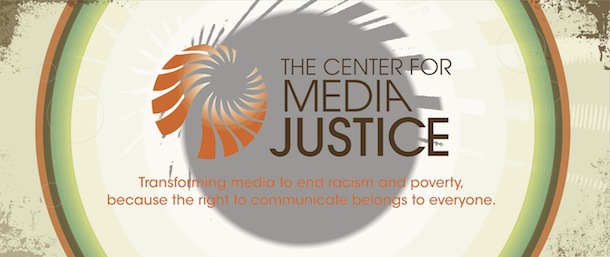FOR IMMEDIATE RELEASE
January 9, 2012
Oakland, CA– The following can be attributed to amalia deloney, Media Policy Field Director at the Center for Media Justice regarding the FCC’s announced changes to the Lifeline Program
Today, FCC Chairman Julius Genachowski announced plans to make some major changes to the Lifeline low-income telecommunications connectivity program. Changes include: establishing a pilot program to determine how Lifeline can best be expanded to include broadband access; increasing digital literacy training at libraries and schools; and expanding broadband access and adoption rates. Genachowski also talked about reforms geared towards ending duplicative service, fraud, and abuse. The planned reforms are estimated to save the fund up to $2 billion.
We have long known that affordable and reliable broadband adoption is an essential component of social and economic inclusion. Nearly all aspects of our daily lives are affected–from banking to health care, education and employment–by our ability to access and use the Internet. Yet tremendous disparities still exist, particularly in our historically marginalized communities, and today’s announcement shows that the FCC continues to share this concern.
The Chairman’s plan to modernize Lifeline to include broadband is an important first step toward achieving this goal, but we fear it does not address the immediate needs of thousands of people across the country who cannot search for employment, fully participate in their education, apply for social services and meet their healthcare needs. Though the pilot program and private partnerships are important components of modernization, they will not be enough to ensure that all communities are able to experience the full benefits of this 21st century communications infrastructure.
Though we understand the FCC’s concern with waste and fraud, limiting the size of the program and cutting off access for those most in need will only increase pre-existing disparities and overlook the program efficiencies that could be increased by monitoring the companies who profit from our communities.
###
Founded in 2002, the Center for Media Justice is a dynamic progressive communications strategy and media policy tank for grassroots organizations serving communities of color and America’s poor.




